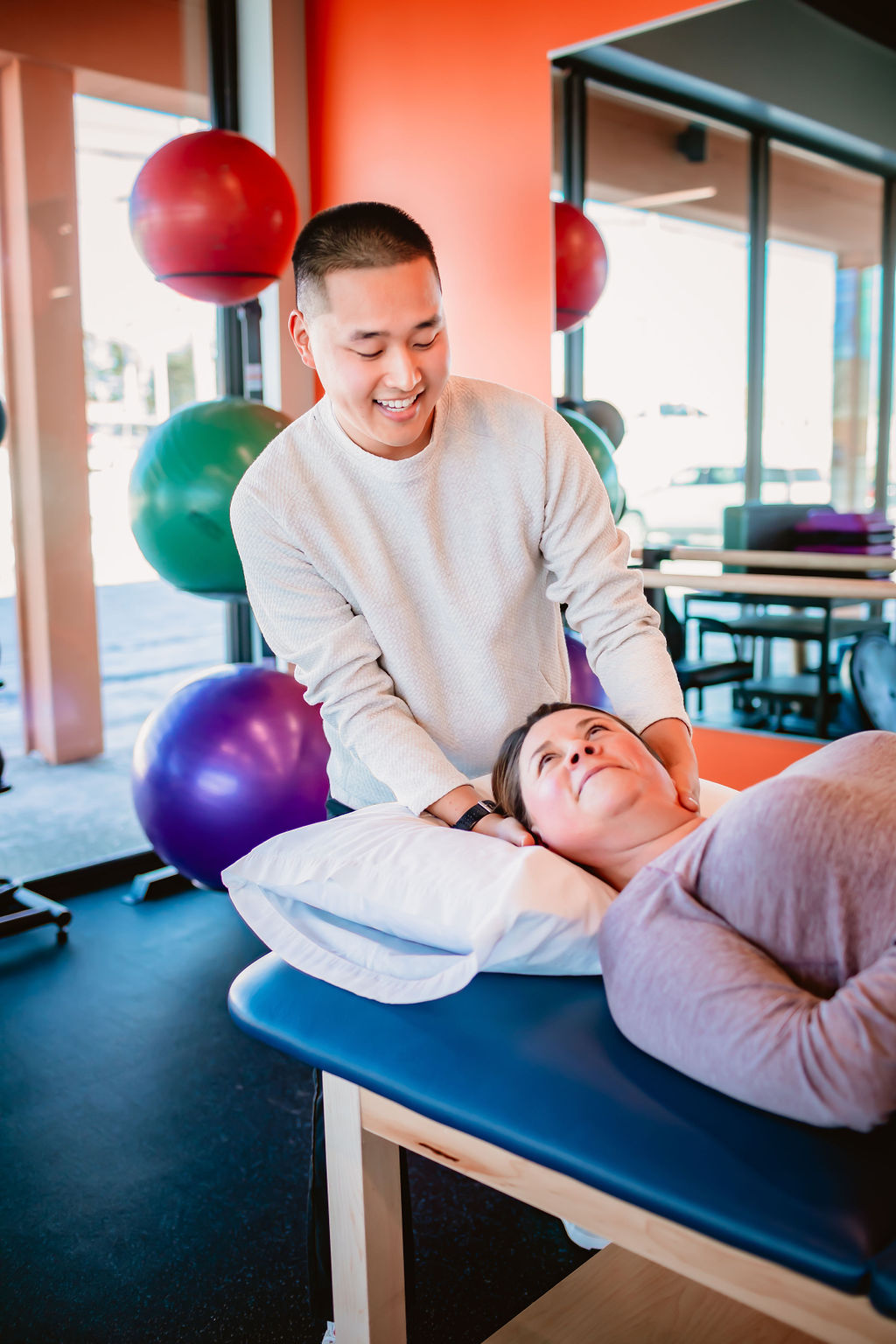Concussion Management

What is a concussion?
Concussions affect more than 3 million Americans annually, with proper management being crucial for full recovery. At Highbar Physical Therapy, our evidence-based concussion treatment protocols provide comprehensive care from initial assessment through return to daily activities, helping patients recover safely and effectively while minimizing long-term complications.
Seeing a Physical Therapist for Concussion Management
A concussion is a mild traumatic brain injury that requires proper assessment and management for optimal recovery. At Highbar Physical Therapy, our specialized concussion management team combines advanced diagnostic techniques with personalized treatment plans to address each patient’s unique symptoms and recovery needs.
Our comprehensive approach begins with a thorough evaluation to assess the nature and severity of your concussion. Using validated assessment tools and clinical expertise, we identify specific areas of impairment and develop a targeted treatment plan. This multifaceted approach addresses physical symptoms, cognitive function, balance issues, and emotional well-being.
We understand that every concussion is different, and recovery timelines vary based on numerous factors. Our team works closely with you to monitor your progress, adjust your treatment plan as needed, and guide you safely through each stage of recovery.

Our Concussion Treatment Protocol
Our evidence-based concussion treatment protocols focus on a gradual return to activities and symptom management. Our comprehensive approach includes:
We also know that concussions can come from non-sports related injuries as well, like with a work incident, fall, or car accident. That’s why it’s so important that we carefully and methodically check the symptoms to create the perfect balance of education, rest, exercise, and activity to promote a successful outcome for the patient.
Returning to school or work after a concussion requires careful planning and monitoring. Our return-to-learn protocol includes specific recommendations for academic accommodations and the gradual reintroduction of cognitive activities. Similarly, our return-to-play protocol for athletes follows a structured progression from light activity to full competition, with clear criteria for advancing through each stage. These evidence-based approaches help prevent symptom exacerbation while supporting successful reintegration to normal activities.
For patients experiencing persistent symptoms beyond the typical recovery period, our post-concussion syndrome management program provides specialized care addressing ongoing challenges. This comprehensive approach combines physical therapy interventions with strategies for managing headaches, fatigue, cognitive difficulties, and emotional symptoms. Our team works collaboratively with neurologists, psychologists, and other specialists as needed to address all aspects of post-concussion syndrome.

Don’t see what you’re looking for?
Return to sports follows a structured, step-by-step protocol that begins only after you’re symptom-free at rest. Each stage must be completed without symptom recurrence before advancing to the next level. This typically takes at least 5-7 days after symptoms resolve, but may be longer depending on your specific situation. Our team will guide you through this process to ensure safe return to play.
In the early stages of recovery, screen use may worsen symptoms and should be limited. As you progress, we’ll help you gradually reintroduce screen time in a way that doesn’t trigger symptoms. Our therapists can provide specific guidelines based on your individual situation and symptom response.
You should seek professional evaluation if you’ve experienced a head injury followed by symptoms such as headache, dizziness, confusion, memory problems, or sensitivity to light or noise. Even mild symptoms warrant assessment, as proper early management can prevent complications and speed recovery.
If you are experiencing any of the following sleep & energy symptoms, you may have a concussion:
- Fatigue
- Excess sleep
- Trouble falling asleep
- Drowsiness
- Sleeping less than normal
If you are experiencing any of the following cognitive symptoms, you may have a concussion:
- Feeling in a fog or slowed down
- Difficulty remembering or concentrating
- Easily distracted or confused
- Slowed speech
If you are experiencing any of the following emotional symptoms, you may have a concussion:
- Inappropriate emotions
- Personality changes
- Nervousness or anxiety
- Feeling more “emotional”
- Irritability
- Sadness
- Lack of motivation
If you are experiencing any of the following physical symptoms, you may have a concussion:
- Headaches/pressure in the head
- Blurred vision or seeing stars
- Dizziness, disorientation
- Poor balance
- Ringing in ears
- Neck pain
- Vacant or glassy-eyed stare
- Nausea or vomiting
- Numbness or tingling in the extremities
- Sensitivity to light, sound, noise
FIND A HIGHBAR PRACTICE
